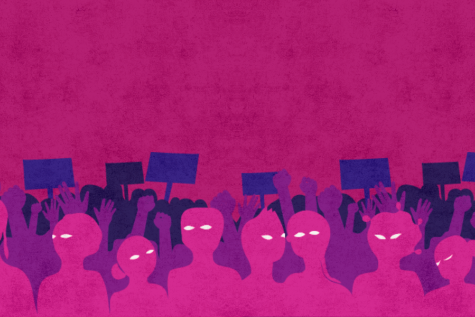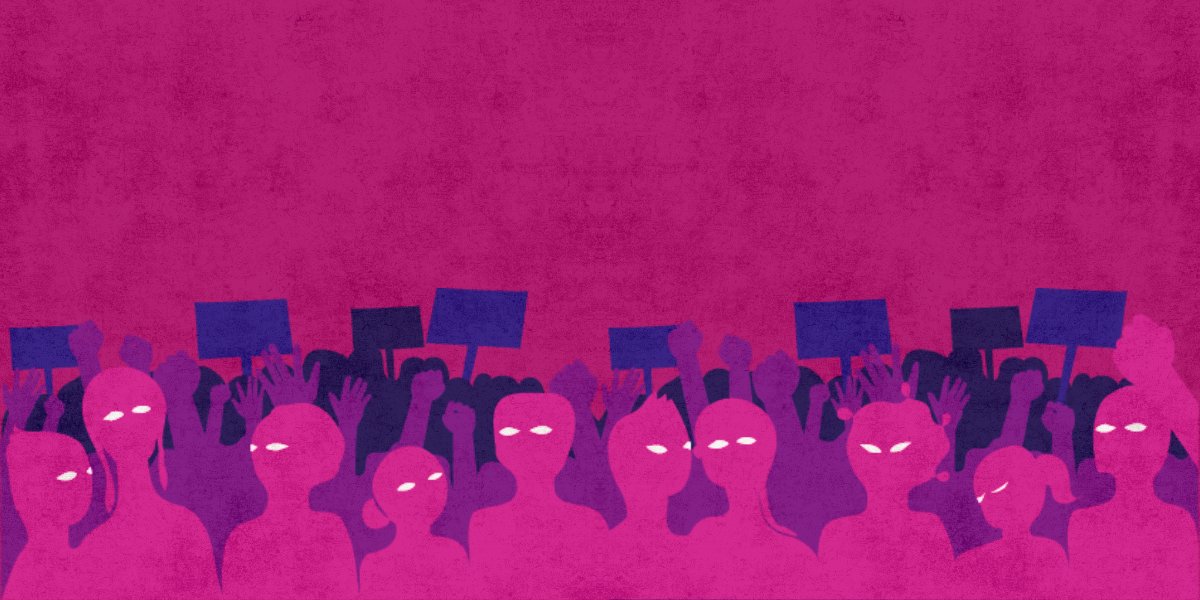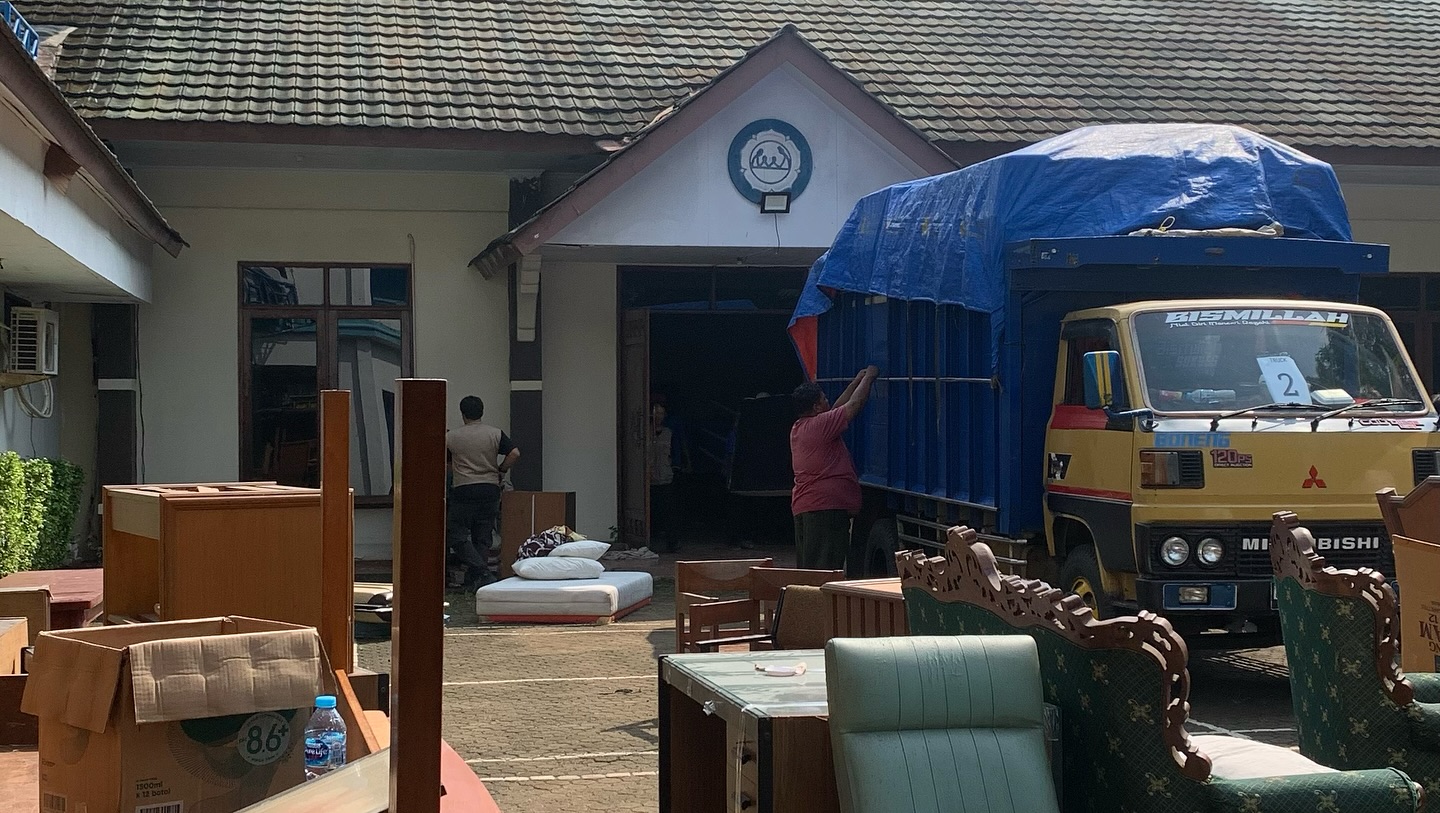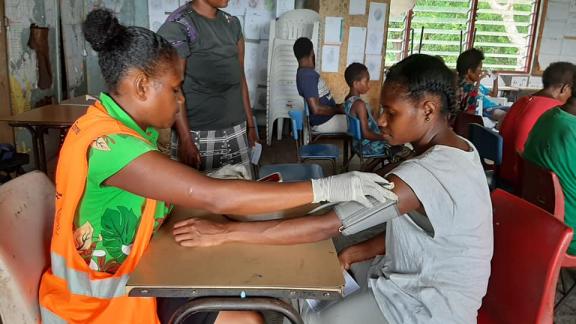Latest press releases
A selection of stories from across the Federation

We Cannot Be Silenced: A Unity Statement from LGBTQI+, Feminist and Human Rights Organizations and Networks in Asia
ILGA ASIA CONFERENCE 2025 | Kathmandu, Nepal | 25 February 2025

| 19 March 2025
IPPF Launches Groundbreaking Initiative to Advance the Sexuality Agenda in Pacific Island Communities
Suva, Fiji, 7 March 2025: “Advancing the Sexuality Agenda and Shifting Norms in the Pacific”, a new programme to promote Sexual and Reproductive Health, Rights and Justice (SRHRJ), challenge harmful norms, and empower Pacific communities has been launched. This programme is implemented as part of the Niu Vaka Strategy Phase II (2023-2028) by the International Planned Parenthood Federation (IPPF)’s Sub-Regional Office for the Pacific (SROP) and 10 Pacific Member Associations. The programme is supported by the Pacific Women Lead Governance Board, facilitated via the Pacific Women Lead at the Pacific Community (PWL at SPC) programme as Secretariat to the board. Pacific Women Lead is Australia’s flagship regional gender equality investment for the Pacific, with the Governance Board driving the strategy and high-level decision making for the Pacific regional gender equality portfolio, championing the advancement of women across the region. In the Pacific, cultural norms and gender inequality continue to be barriers to accessing safe, affordable and critical sexual and reproductive health care, information and/or education. This programme intends to implement strategic, evidence-based interventions to promote change. Key activities include: Researching Cultural Barriers: Identifying and addressing key obstacles to SRHR in Pacific communities. Strengthening Gender-Transformative Programming: Enhancing policies and programmes that challenge harmful gender norms in nine (9) Pacific Island countries. Developing a Pacific Youth SRHR Strategy: Ensuring that young people, particularly young women and girls, have access to rights-based sexual and reproductive health care. This project aims to improve gender equality, uphold women’s rights, and equip youths with fair access to resources and tools by emphasizing community-led outcomes and encouraging cross-sector collaboration to build a healthier and more inclusive and gender-equal Pacific community. Dolores Devesi, IPPF’s Pacific Member Associations (MA) Support and Development Director, emphasized the significance of this programme, stating that this project presents an important opportunity to address the lack of access to SRHR, strengthening internal protocols and empowering young people. “The project has come at the right time especially when we are seeing a global decline in investment towards sexual and reproductive health, while in the Pacific, HIV & STIs are on the rise at alarming rates, teenage pregnancies and sexual and gender-based violence (SGBV) continue to soar. We are grateful for the opportunity this brings as we work towards a better understanding and analysis of the barriers related to SRHR, the operationalization of internal SGBV protocols within our Member Associations and a platform for young people to lead groundbreaking work on SRHR in the region”. The official launch marks the beginning of a journey towards a more inclusive and equitable Pacific region, committed to SRHRJ for all. For more information and media enquiries, contact: Maxine Tuwila Communications, Voice & Media Officer Sub-Regional Office for the Pacific [email protected] About IPPF in the Pacific IPPF is a global healthcare provider and a leading advocate of sexual and reproductive health and rights (SRHR) for all. Led by a courageous and determined group of women, IPPF was founded in 1952 at the Third International Planned Parenthood Conference. Today, we are a movement of 158 Member Associations and Collaborative Partners with a presence in over 153 countries. IPPF East and South East Asia and Oceania Region (IPPF ESEAOR) is one of IPPF’s six regional offices and includes the Sub-Regional Office for the Pacific (SROP). SROP supports member associations and collaborative partners in 10 Pacific countries: Cook Islands Family Welfare Association (CIFWA), Kiribati Family Health Association (KFHA), Papua New Guinea Family Health Association (PNGFHA), Reproductive and Family Health Association of Fiji (RFHAF), Samoa Family Health Association (SFHA), Solomon Islands Planned Parenthood Association (SIPPA), Tonga Family Health Association (TFHA), Tuvalu Family Health Association (TuFHA), Vanuatu Family Health Association (VFHA) and Youth to Youth in Health (YTYiH) in the Republic of Marshall Islands.

| 17 March 2025
We Cannot Be Silenced: A Unity Statement from LGBTQI+, Feminist and Human Rights Organizations and Networks in Asia
We make this statement at the first-ever gathering of LGBTQI+ and SOGIESC-diverse communities in Asia since the Trump administration’s return to power. Our very presence here is a declaration of resistance and history in the making. We stand bold, united, and unshaken: we will fight the US administration and their allies in their war against rights, gender justice, diversity, inclusion, equality, and freedom. Within days of Donald Trump’s return to power in January 2025, his administration launched an all-out war on human rights, dignity, and justice. In a calculated attack on the most marginalized communities, the US administration reinstated the Global Gag Rule, cutting off critical funding for reproductive health and rights worldwide. He issued sweeping Executive Orders erasing protections for LGBTQI+ people, banning transgender athletes, criminalizing gender-affirming care, and silencing movements for equality. The U.S. government froze nearly all foreign assistance, forcing life-saving programs for LGBTQI+ people, women, people living with HIV and marginalized groups to shut down overnight. By February 7, organizations began receiving termination notices, severing their ability to serve communities most at risk. This is not just an attack on LGBTQI+ rights, it is an assault on gender justice, reproductive justice, racial justice and our collective freedoms. We are witnessing a coordinated effort between the US administration and the world’s most powerful tech corporations to erase history, silence dissent, and suppress movements for justice. The removal of Black History Month, Women’s History Month, and even the branding of Pride and reproductive rights products is a chilling warning: they are trying to erase us. Social media power players like Google, Facebook, and X are conspiring with authoritarian forces to control the narrative and dismantle decades of hard-fought progress. But we refuse to be erased. We refuse to be silenced. The insistence that gender-affirming care is not real healthcare is a direct attack on evidence-based, life-saving medicine. The bans on gender-affirming care for minors and trans athletes are not just policies — they are part of a broader, dangerous ideology that seeks to strip us of our dignity and autonomy. This is not just about LGBTQI+ people. This is about the right of every person to exist freely, without fear of state-sponsored violence and repression.

| 06 December 2024
Press Release: New Report Sheds Light on Anti-Rights Actors in the Asia-Pacific Region
Press Release: Unveiling Subversive Power: New Report Sheds Light on Anti-Rights Actors in the Asia-Pacific Region December 5, 2024 - Justice for Prosperity Foundation (JfP) in collaboration with the International Planned Parenthood Federation (IPPF), has launched a groundbreaking report titled "Unveiling Subversive Power," highlighting the rising threats to sexual and reproductive health and rights (SRHR), gender equality, and LGBTIQ+ rights across the Asia-Pacific region. The report outlines the dangerous tactics employed by authoritarian states and conservative alliances that manipulate cultural narratives to undermine democratic institutions and silence dissent. It provides an in-depth analysis of how anti-rights actors exploit societal divisions and governmental vulnerabilities to reshape norms, gain influence, and push their ideological agendas. In many cases, relationships and activities are intentionally manipulated. Ultra-conservative, traditionalist, religious actors are the ones who mostly drive this manipulation. Key findings included that extremist movements and foreign state influences strategically undermine the democratic principles and human rights frameworks. The influence of religious institutions, coupled with political conservatism, fosters environments where discriminatory legislation flourishes, including laws that explicitly criminalize SRHR and LGBTIQ+ rights. Case studies from countries such as Vanuatu, Solomon Islands, Papua New Guinea, Indonesia, the Philippines and Malaysia reveal disturbing patterns of exploitation, disinformation, and systemic oppression against marginalised communities. "This report highlights the urgent need to confront anti-rights actors strategically exploiting societal divisions to weaken democratic systems and destabilise institutions. These actions pose cross-sectoral threats, demanding broad solidarity among diverse groups—SRHRJ movements, marginalised communities, climate advocates, and health networks. IPPF is committed to fostering collaboration and building comprehensive alliances to ensure a united response that safeguards justice, democracy, and our shared future," said Tomoko Fukuda, Regional Director, IPPF ESEAOR. Jelle Postma, from JfP, said “We must deploy early detection of anti-rights networks and activities, foreign influences, and legislative proposals, and have a unified response across international and governmental agencies to counteract the destabilising impact of these actors.” The anti-rights movement poses a serious threat to regional and national security in the Asia Pacific, with potential to undermine long-standing democratic principles. Justice for Prosperity and IPPF underscore the urgent need for coordinated action among governments, civil society, and international partners to preserve and protect the hard-won rights of individuals across the region. The full report, "Unveiling Subversive Power: Shedding Light on Anti-Rights Actors in the Asia-Pacific Region," is available for download on the IPPF website or for download on the JfP website. For media enquiries or further information, please contact us at [email protected] or [email protected].

| 29 November 2024
IPPF ESEAOR Urges Pacific Governments to Address Barriers Facing LGBTIQA+ Communities
Suva/Kuala Lumpur, 28 November 2024- Recent reports from across the Pacific highlight the increasing challenges faced by the LGBTIQA+ community, particularly in accessing essential sexual and reproductive health and rights (SRHR). Discriminatory attitudes, legal barriers, and harmful political rhetoric continue to exacerbate these issues, profoundly affecting health, well-being, and human rights in the region. In Fiji, the rising rate of HIV cases among Itaukei men, particularly in rural areas, reflects the barriers preventing LGBTIQA+ individuals from accessing essential health services. The stigma surrounding men who have sex with men (MSM) plays a critical role in discouraging individuals from seeking HIV testing, treatment, and prevention measures such as PrEP (pre-exposure prophylaxis). Coupled with a lack of targeted health campaigns for MSM and the pervasive influence of cultural and religious stigmas, many are left without the necessary resources. A 2018 study by the Fiji Network of People Living with HIV (FJN+) revealed how cultural and religious stigma directly contributes to rising HIV transmission rates, as individuals avoid care due to fear of discrimination and societal rejection. Avendra Prakash, President of the Reproductive and Family Health Association of Fiji (RFHAF), emphasised the urgency of addressing HIV/AIDS in Fiji and fostering inclusive healthcare. “Stigma remains a major barrier to progress, which is why our focus is on equitable healthcare, HIV prevention, and ensuring access to essential services,” he said. He also stressed the need for continued collaboration with government ministries and stakeholders to improve outcomes. In Tonga, Vanuatu, and the Solomon Islands, discriminatory attitudes further marginalise the LGBTIQA+ community and hinder access to vital services. In Tonga, the petition against the country’s first openly gay Chief Justice reflects broader anti-LGBTIQA+ sentiment within the legal and political spheres. This undermines individual rights and discourages LGBTIQA+ individuals from seeking legal protection or healthcare. In Vanuatu, the government’s recent ban on LGBTIQA+ advocacy groups restricts civil society’s ability to provide critical health education and services, including HIV prevention. Without such advocacy, LGBTIQA+ individuals—particularly MSM and transgender individuals—lack access to vital health resources and information, increasing their vulnerability to HIV and other health concerns. In the Solomon Islands, former Prime Minister Manasseh Sogavare's political rhetoric targeting the LGBTIQA+ community fosters fear, exclusion, and stigma, reinforcing discrimination. This environment deters individuals from seeking healthcare or legal protection and perpetuates a culture where health concerns remain underreported and unaddressed. Hiulyn Vozoto, acting Executive Director of the Solomon Islands Planned Parenthood Association (SIPPA), highlighted the organisation’s commitment to supporting marginalised communities accessing SRH services. “Our values are rooted in non-discrimination and respect. We are dedicated to addressing the gaps in care for marginalised communities, ensuring comprehensive SRH services are available to all, including LGBTIQA+ individuals.” Echoing Vozoto’s statement, the Executive Director of Tonga Family Health Association (TFHA), Seniloli Inoke, affirmed TFHA’s focus on inclusivity. “TFHA ensures SRH services are accessible to everyone, especially the LGBTIQA+ community,” he said. Prisca Mauve, Executive Director of the Papua New Guinea Family Health Association (PNGFHA), called for greater government action. “Pacific governments must work with us to tackle anti-LGBTIQA+ attitudes, which prevent communities from accessing safe and affordable SRHR services. Limited funding and accessibility continue to impact rural and marginalised populations’ access to care,” she said. Executive Directors from Pacific Member Associations emphasised the need for governments to collaborate with IPPF and its Member Associations to create policies that protect and promote the SRHR of all individuals, regardless of Sexual Orientation, Gender Identity, and Sexual Characteristics (SOGIESC). This collaboration is essential for: Addressing HIV Prevention and Treatment: Prioritise targeted interventions for MSM, transgender individuals, and other marginalised communities supported by culturally appropriate and inclusive healthcare services. Advocating for Legal Protection and Human Rights: Governments must uphold the rights of LGBTIQA+ individuals by guaranteeing access to healthcare and legal protections without discrimination. Combating Stigma and Discrimination: Implement policies and initiatives to reduce stigma and foster inclusivity, creating an environment where everyone can access healthcare services without fear. ____________________________________________________________________ About the International Planned Parenthood Federation The International Planned Parenthood Federation (IPPF) is a global healthcare provider and a leading advocate of sexual and reproductive health and rights (SRHR) for all. We are a movement of 150 Member Associations and Collaborative Partners with a presence in over 146 countries. Building on a proud history of 70 years of achievement, we commit to leading a locally owned, globally connected civil society movement that provides and enables services and champions sexual and reproductive health and rights for all, especially the underserved. IPPF East & Southeast Asia and Oceania Region (ESEAOR), based in Kuala Lumpur, Malaysia, is one of IPPF’s six regional offices, with a Sub Regional Office for the Pacific in Suva, Fiji. For more information and media enquiries, contact: Maxine Tuwila, Communications, Voice and Media Officer Sub Regional Office for the Pacific [email protected] Malarvili Meganathan, Regional Communications, Voice & Media Advisor East, Southeast Asia and Oceania Region [email protected]

| 11 July 2024
IPPF Expresses Concern Over Eviction of IPPA Headquarters After 55 Years in South Jakarta
Jakarta/Kuala Lumpur, 11 July 2024 - The International Planned Parenthood Federation (IPPF) expresses profound concern over the forced eviction that took place yesterday (10th July) in South Jakarta. Approximately 100 municipal police personnel, supported by dozens of police and military officers, carried out the eviction at the office of Perkumpulan Keluarga Berencana Indonesia (PKBI). PKBI, also known as the Indonesian Planned Parenthood Association (IPPA), is a local Member Association of IPPF. The eviction, mandated by the City Government of South Jakarta and the Indonesian Ministry of Health, involved land IPPA has occupied since 1970, based on Special Capital Region (DKI) Governor Decree No.207/2016. Despite a court ruling deeming the eviction non-executable, authorities removed belongings from the office. Established in 1957, IPPA is a leading non-governmental organisation (NGO) that provides essential reproductive health services, including counselling, contraceptives, STI and HIV care, cancer screening, youth education, support for sexual and gender-based violence (SGBV), and infertility treatment. IPPA was instrumental in the formation of the National Population and Family Planning Agency (BKKBN) and has been dedicated to advancing public health ever since. In 1970, DKI Governor Ali Sadikin granted the land that has since become home to IPPA's headquarters and training centre, serving communities across Indonesia, including marginalised groups in hard-to-reach areas. Founder Dr H. R. Soeharto Sastrosoeyoso's visionary leadership in improving reproductive health services in Indonesia was honoured when President Joko Widodo named him a national hero in 2022. This prestigious award underscores the significant role IPPA has played in advancing public health and reproductive rights nationwide, impacting the lives of countless individuals. Eko Maryadi, Executive Director of IPPA, said: "Over 67 years, we have served communities across 25 provinces and 178 cities/districts, supporting government programs including Sexual and Reproductive Health (SRH) services, vaccinations, maternal health, and humanitarian assistance during crises. Yesterday's forced eviction from our headquarters in South Jakarta was unjust and deeply disappointing, threatening the continuity of vital health services, especially for marginalised communities. Our commitment remains unwavering, and we hope for a resolution that allows us to continue our mission and serve those in need.” Dr. Alvaro Bermejo, Director-General of IPPF, said: “IPPF stands in strong solidarity with the Indonesian Planned Parenthood Association (IPPA). Eviction without due process is not only a violation of rights but also disrupts critical services for marginalised communities, including women, people living with HIV, sexually diverse populations, and incarcerated individuals. This eviction severely impacts the well-being of the communities they serve and highlights the broader implications of such actions. In recent years, IPPA has been a lifeline during humanitarian emergencies, providing essential services during earthquakes and floods in various provinces of Indonesia. We call upon local authorities to uphold human rights and support IPPA’s crucial work in providing sexual and reproductive health services to Indonesians. Protecting organisations dedicated to public health and human rights is essential. We urge swift action to resolve this matter and safeguard the health and rights of the impacted communities.” Notes to editors: Indonesian Planned Parenthood Association (IPPA) Established in 1957, the Indonesian Planned Parenthood Association (IPPA) is locally registered as an independent, non-profit, and non-governmental association. As a leader in sexual and reproductive health and rights (SRHR), IPPA delivers essential services, promotes education and awareness, and influences policymakers to respect, protect, and fulfil SRHR based on human rights principles. Upholding values of dignity, democracy, non-discrimination, gender equality, social justice, and autonomy, IPPA empowers communities, builds inclusive youth movements, and provides comprehensive SRH services. In 2013, approximately 145,503 clients in Indonesia received SRH services through 76 service delivery points. About the International Planned Parenthood Federation The International Planned Parenthood Federation (IPPF) is a global healthcare provider and a leading advocate of sexual and reproductive health and rights (SRHR) for all. We are a movement of 150 Member Associations and Collaborative Partners with a presence in over 146 countries. Building on a proud history of 70 years of achievement, we commit to lead a locally owned, globally connected civil society movement that provides and enables services and champions sexual and reproductive health and rights for all, especially the under-served. IPPF East & Southeast Asia and Oceania Region (ESEAOR), based in Kuala Lumpur, Malaysia, is one of IPPF’s six regional offices, with a Sub Regional Office for the Pacific in Suva, Fiji. For more information and media enquiries, contact: Malarvili Meganathan, Regional Communications, Voice & Media Advisor, East, Southeast Asia and Oceania Region [email protected]

| 07 July 2024
IPPF ESEAOR Welcomes Landmark Ruling Declaring Japan's Forced Sterilisation Unconstitutional
Kuala Lumpur, 5 July 2024 - The International Planned Parenthood Federation East, Southeast Asia, and Oceania Region (IPPF ESEAOR) welcomes the landmark ruling by Japan’s Supreme Court, declaring practices under the now-defunct eugenics law unconstitutional and ordering the government to pay damages to survivors of forced sterilisations. This historic ruling by the nation’s highest court is a significant victory for the plaintiffs and about 25,000 others forcibly sterilised under the law. The court rejected the government’s argument about the 20-year statute of limitations, deeming it irrelevant in this case and setting an important precedent for survivors to come forward. The Eugenic Protection Law (EPL), in place from 1948 to 1996, allowed authorities to forcibly sterilise people with disabilities, including those with mental health conditions, hereditary diseases, and leprosy. The law was repealed in 1996 after activists highlighted forced sterilisations at the 1994 International Conference on Population and Development (ICPD) in Cairo, emphasising that reproductive rights are human rights and underscoring the need for bodily autonomy. Tomoko Fukuda, IPPF ESEAOR Regional Director, stated: “This ruling is long overdue. The stories of those whose life decisions were forcibly taken away are heart-wrenching. This recognition by the Japanese government acknowledges horrific actions against humanity. It gives us hope that Japan is moving in the right direction for upholding sexual and reproductive health and rights for all.” Despite Japan's economic development and accessible healthcare, the country continues to lag in gender equality, as highlighted by the World Economic Forum’s Gender Gap Report 2024. Ranked 118th out of 146 countries, Japan improved from the previous year’s rank of 125th but remains the lowest among the Group of Seven (G7) nations. This is due to long-standing issues such as the gender pay gap, low representation of women in politics and leadership roles, and barriers to sexual reproductive health and rights (SRHR). "Civil society, media, and the private sector must unite to amplify our voices and raise awareness. We must keep pressuring the government to pave the way for greater bodily autonomy and reproductive rights, ensuring meaningful change,” she emphasised. In 2019, following more than two decades of advocacy to revise this discriminatory policy, parliament passed legislation granting ¥3.2 million ($20,000) in state compensation to each individual affected by forced sterilisation under the relief law. Survivors and activists argued that this amount was insufficient, given the severity of their suffering. Building on this milestone, in 2023, a detailed 1,400-page report was submitted to parliament, revealing extensive findings into the law's enactment and impact. The probe, which began in 2020, uncovered about 16,500 people were sterilised against their will using deception and anaesthesia. Additionally, 8,500 individuals who ostensibly consented were likely coerced. Consent rules gained attention last year when the health ministry approved Japan’s first abortion pill, the Mefeego pill pack by Linepharma, as an alternative to surgical procedures. The ministry stated that spousal consent laws still apply to abortion pills. The 1996 Maternal Health Act, which includes the spousal consent requirement, evolved from the 1948 Eugenic Protection Act, which legalised abortion. Image/banner credit: Yuichi Yamazaki/AFP/Getty Images Notes to editors: The International Planned Parenthood Federation (IPPF) is a global healthcare provider and a leading advocate of sexual and reproductive health and rights for all. Led by a courageous and determined group of women, IPPF was founded in 1952, and today, it is a movement of 150 member associations and collaborative partners with a presence in over 146 countries. IPPF East & Southeast Asia and Oceania Region (ESEAOR), based in Kuala Lumpur, Malaysia, is one of IPPF’s six regional offices with a Sub Regional Office for the Pacific in Suva, Fiji. For more information and media enquiries, contact: Malarvili Meganathan, Regional Communications, Voice & Media Advisor, East, Southeast Asia and Oceania Region [email protected]









